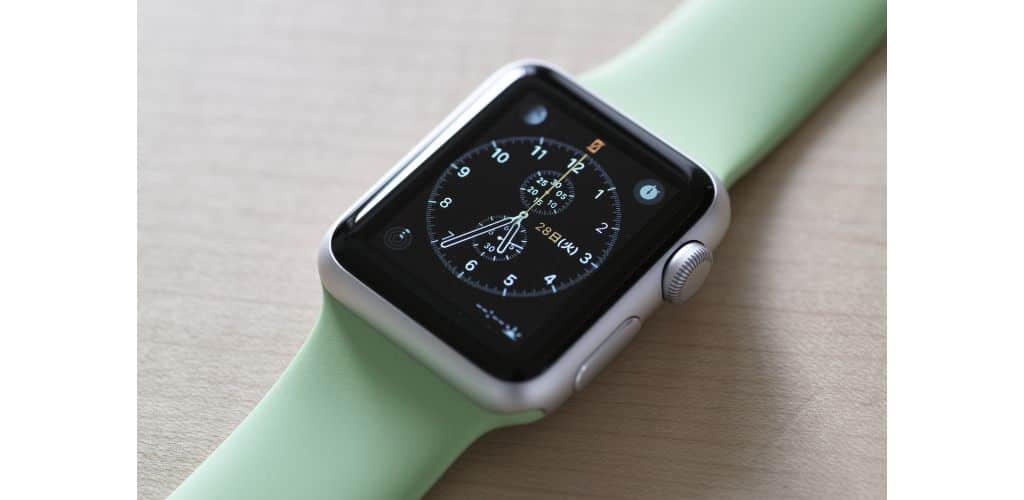It’s been an exciting holiday season for Apple Watches.
The watch’s blood oxygen level sensor, introduced in the 6th generation Apple Watch in 2020, is the basis for a patent conflict between Apple and Masimo, a medical technology company.
Masimo has its own smartwatch called the Masimo W1.
Masimo alleges that Apple’s sensor infringed two Masimo patents. In October, the US International Trade Commission (ITC) ruled that Apple had violated Masimo’s patents.
As Reuters reported, the ITC upheld a federal court ruling in January 2023 that Apple violated the Masimo patents for light-based technology for sensing blood oxygen levels.
As Yale Medicine explains,
pulse oximetry is a painless, noninvasive method of measuring the saturation of oxygen in a person’s blood….
Our organs need a constant supply of oxygen to work properly. When the capacity of the lungs to transport oxygen into the blood is impaired, blood oxygen saturation declines, potentially putting our organs in danger. A pulse oximeter can quickly detect this drop in oxygen saturation, alerting people of the need for medical intervention.
Many people invested in home pulse oximeters when it was discovered that low pulse ox levels were often an early symptom of infection with COVID-19.
Low pulse ox levels are also associated with higher rates of death from COVID-19, as a UW Medicine study showed.
The ITC order prohibited Apple from importing the watches into the US and selling them to resellers. Since patent law is national, the order only applied to imports into the US.
The case has no impact on those who already own Apple watches.
The ITC case was then referred to the White House for a 60-day review.
As of Christmas Eve, it looked like if President Biden didn’t veto the ITC decision, Apple would be prohibited from selling its latest watch models, the Series 9 and Ultra 2.
Apple stopped selling the watches at issue on its website as of December 21, and stopped sales in its retail stores on December 24. Sales continued at other retailers such as Best Buy, Amazon, Target, and Walmart. Also, consumers could still buy models of Apple watches that didn’t include the challenged sensor technology such as the SE watch model.
The ITC order became final on December 26 when US Trade Representative Katherine Tai decided not to reverse the ITC decision.
But on December 27, a federal appeals court allowed Apple to continue selling the watches.
The court granted Apple’s motion for an interim stay of the ITC order.
As Bloomberg reported, Apple has been trying to make changes in the watch’s algorithms to avoid infringing the Masimo patents.
The US government is expected to decide by January 12 whether Apple’s changes are enough to avoid infringement.
Apple has stated that it expects the Federal Circuit to hear a motion by January 15 on whether to stay the ITC order until Apple’s appeal can be heard.
Apple has resumed selling the watches at issue – for now, in any case.
According to CNET,
The Apple Watch is one of Apple’s most important products and has helped make the company’s wearables, home and accessories business its second-largest product category, behind the iPhone. Apple has previously said the size of its wearables unit alone equals that of a Fortune 150 company. Smartwatches were also among the top products sold during the Black Friday period, according to holiday shopping data from Adobe.
As CNET reported, a smartwatch may not be the best option for monitoring blood oxygen levels. According to Jennifer Schrack, a professor in the Department of Epidemiology at the Johns Hopkins Bloomberg School of Public Health,
Consumer wearables are a great supplemental way for people to stay informed about their health, but they are subject to error. It is important to remember that they are measuring blood oxygen using PPG sensors, which can be affected by things like skin tone.
Just like the haiku above, we like to keep our posts short and sweet. Hopefully, you found this bite-sized information helpful. If you would like more information, please do not hesitate to contact us here.


